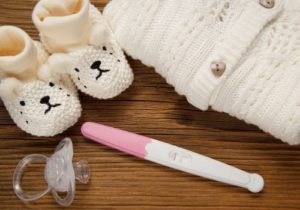February 12, 2026
How Do I Know When I’m Fertile?


There is a common misconception that it is easy to become pregnant; people often think that if a woman has regular intercourse without birth control, she will soon conceive. Unfortunately, this is not the case for many couples. For most women, conception takes planning because they can only become pregnant during their fertile window.
What Is My Fertile Window?
Your most fertile days — known as your fertile window — are the six days leading up to ovulation. Ovulation is when your ovary releases an egg into the fallopian tube, and that 24–48‑hour window is when conception is most likely if sperm are already present. This is when your body is most ready for pregnancy because your egg is about to be released, and sperm has the best chance of meeting it. The two to three days right before ovulation are especially important. That's when your chances of conceiving are highest.
Does Age Impact My Fertile Window?
Your fertile window happens around the same time in your cycle no matter your age, but age does affect your chances of getting pregnant. As women get older, especially after 35, egg quantity and quality naturally decline, which can make conception harder. If you’re over 35 and have been trying to get pregnant for six months or more, it’s a good idea to consult a fertility specialist.
Optimize Your Fertile Window
Peak fertility can vary significantly among women, even those with regular cycles. Determining your peak fertility by tracking your ovulation cycle has been popularized; ovulation detection kits (which measure the amount of luteinizing hormone in urine) have even become widely used tools for helping couples become pregnant.
However, for pregnancy to happen, three things must line up:
- You ovulate (release an egg each cycle).
- Your partner has a normal or near‑normal sperm count (checked with a semen analysis).
- Your uterus and fallopian tubes are open and healthy (often checked with tests like ultrasound or an HSG).
The top way to optimize your fertile window is to have regular intercourse. Since peak fertility varies in the fertile window, the more often intercourse occurs during this window, the more likely conception will occur.
When to Be Concerned About Infertility
Infertility is usually defined as not getting pregnant after 12 months of regular, unprotected intercourse, or after six months if you’re 35 or older.
Determining infertility isn’t something you can do on your own. If you’re under 35 and have been trying to conceive for over a year without success, it’s time to talk to a fertility doctor. If you’re 35 or older, see a specialist after six months of trying. And if your periods are irregular — no matter your age — it’s a good idea to seek help sooner. Scheduling a consultation with a fertility specialist can help you figure out what’s going on and what your options are.